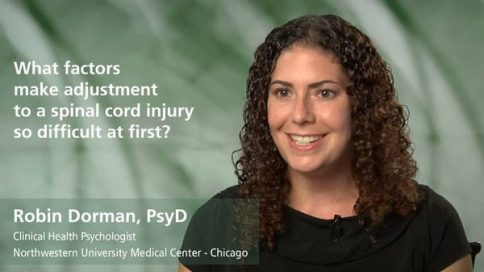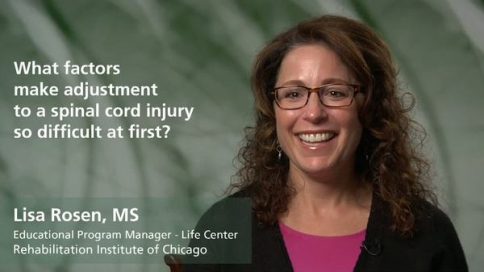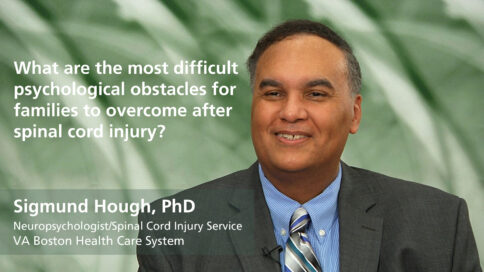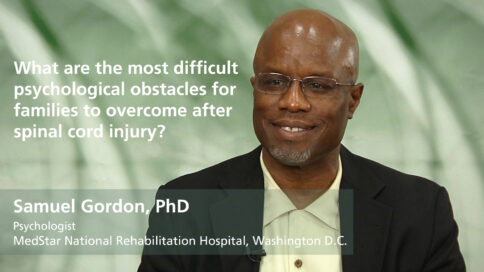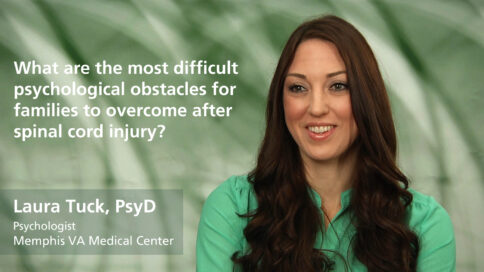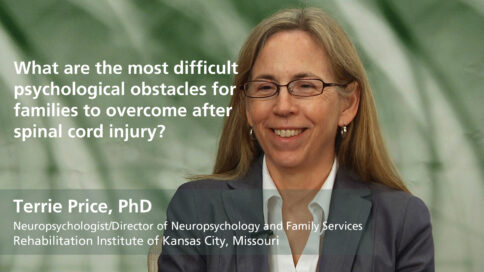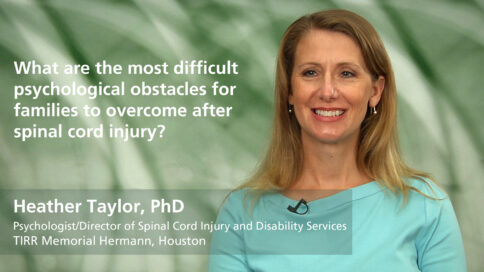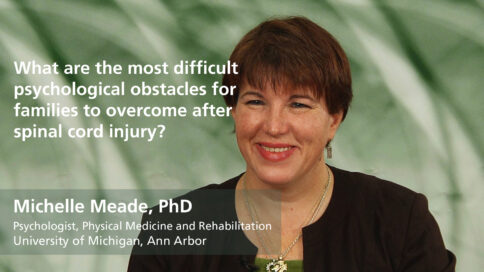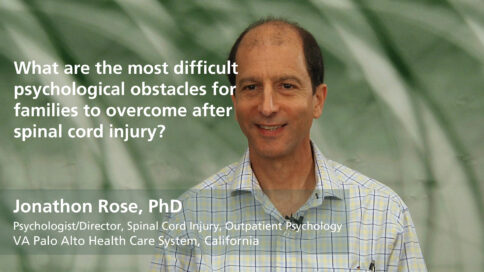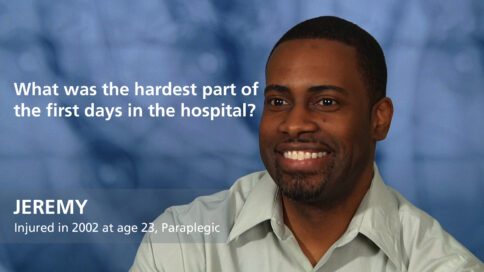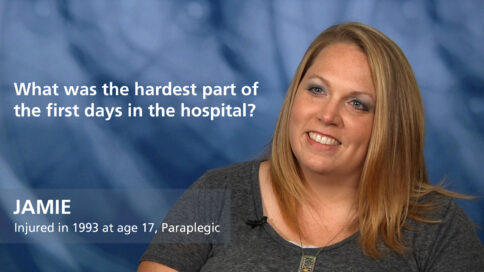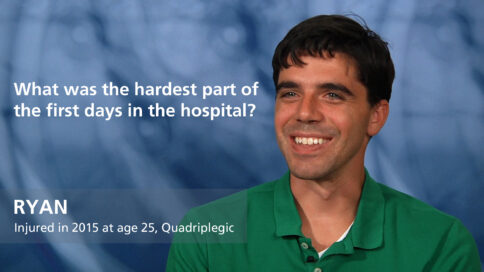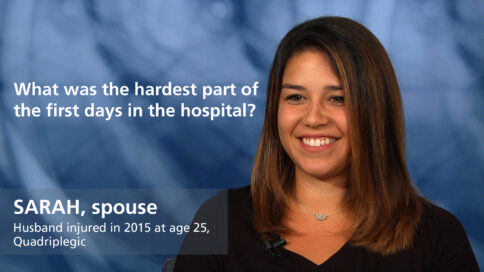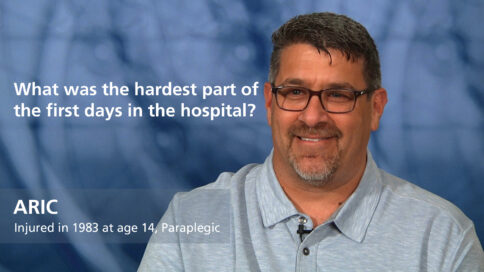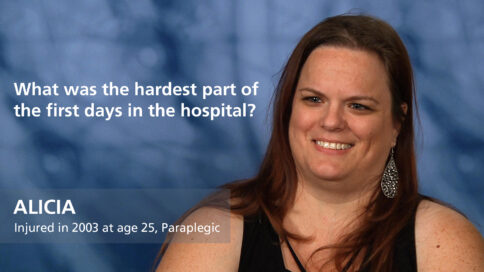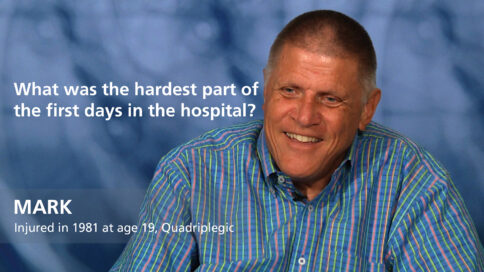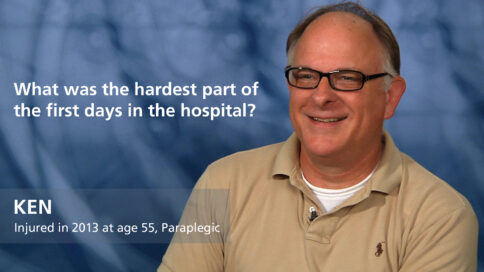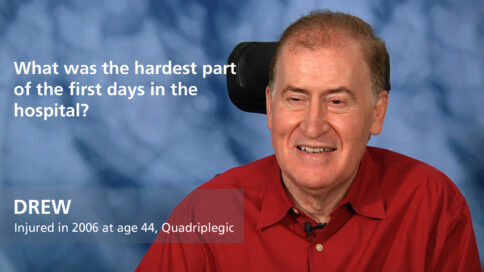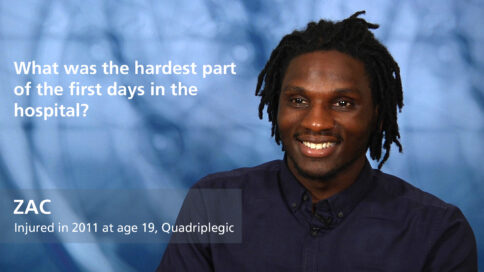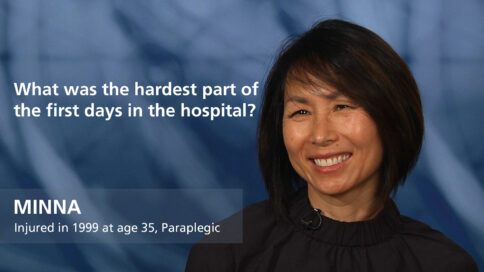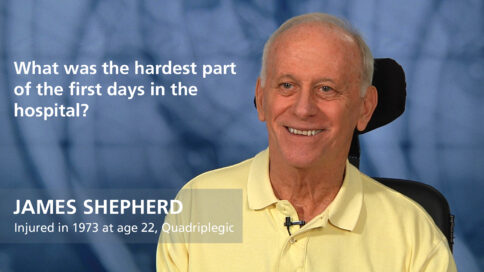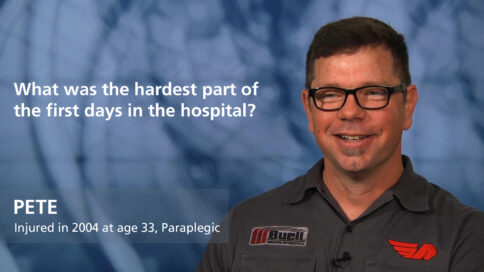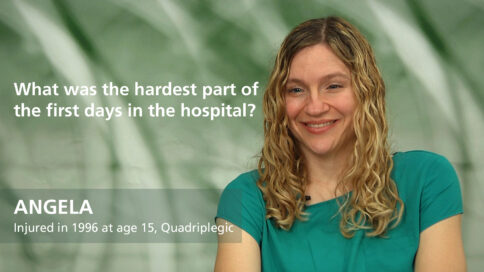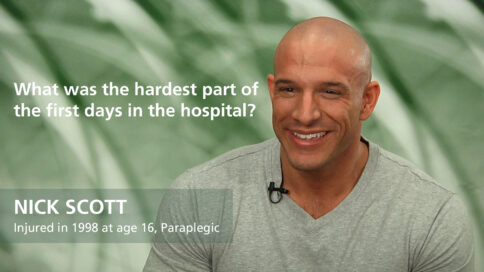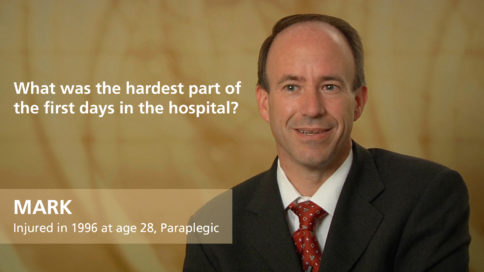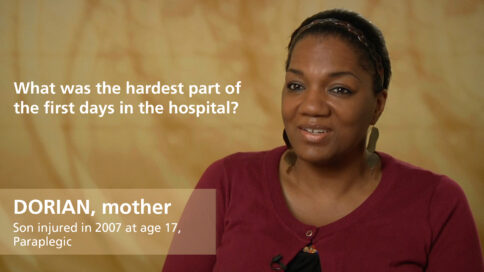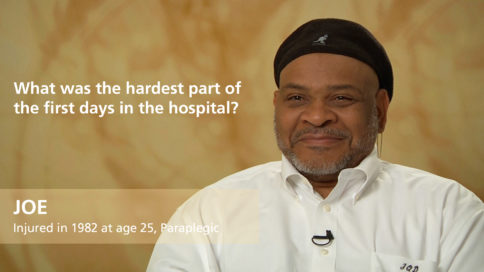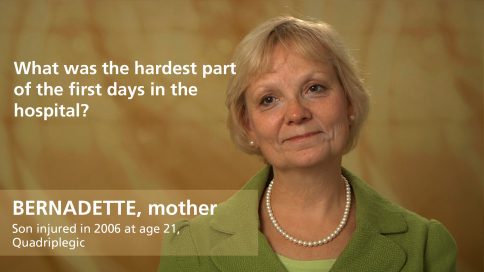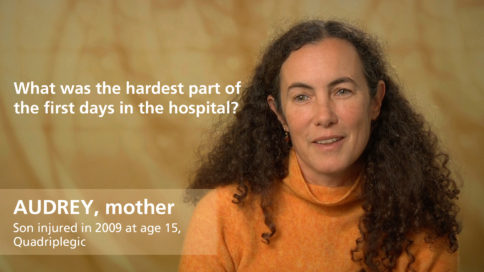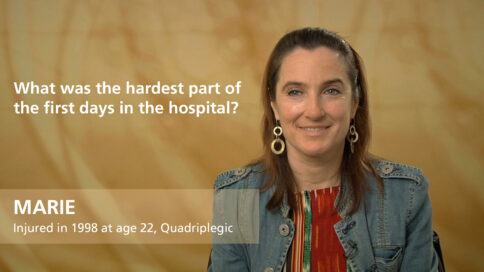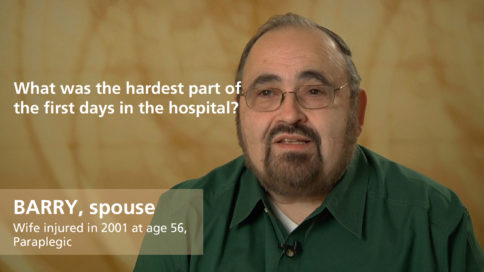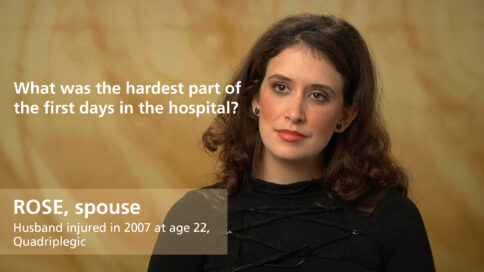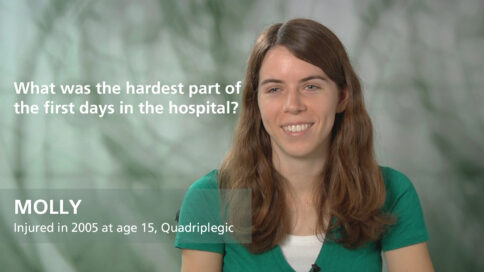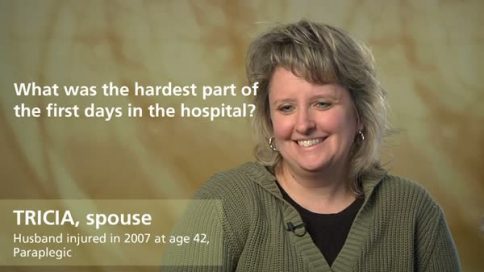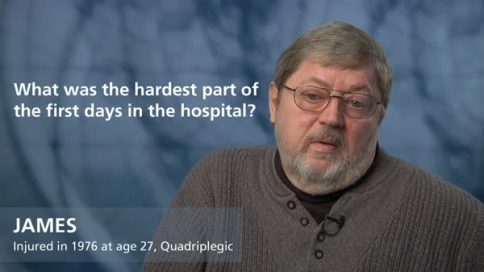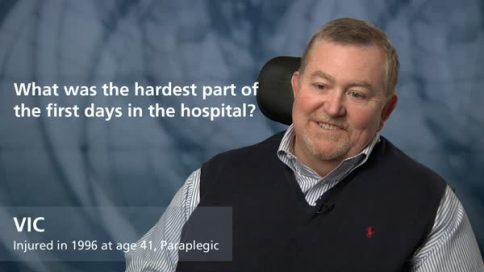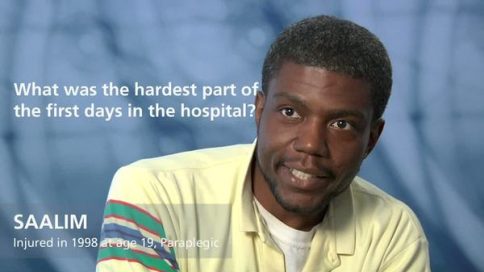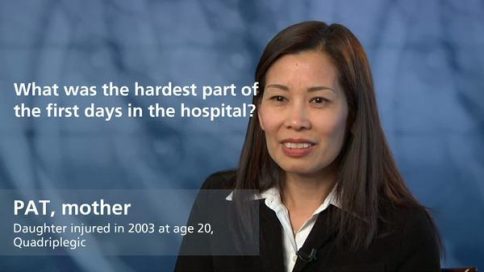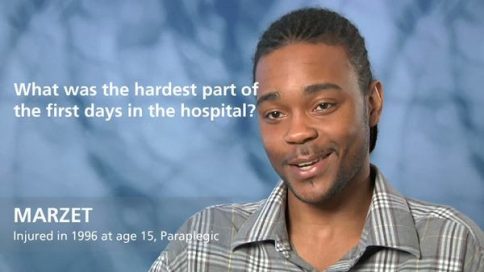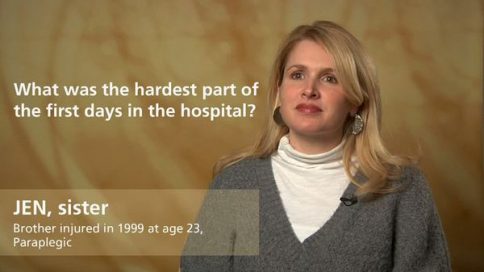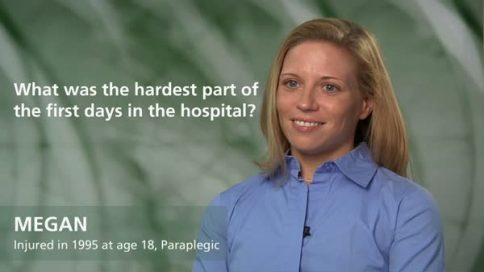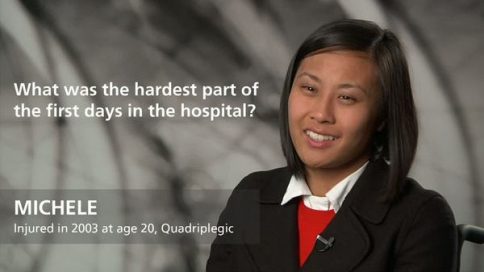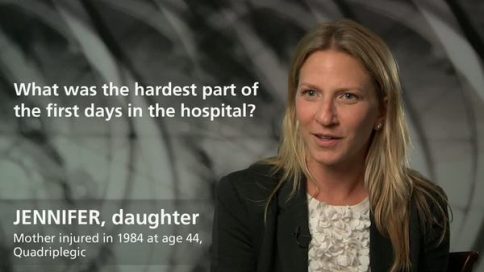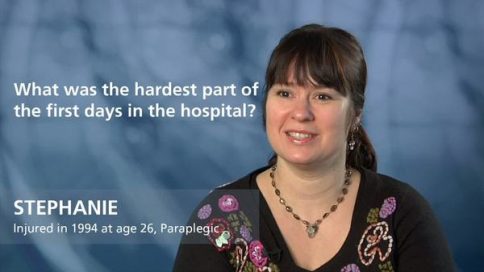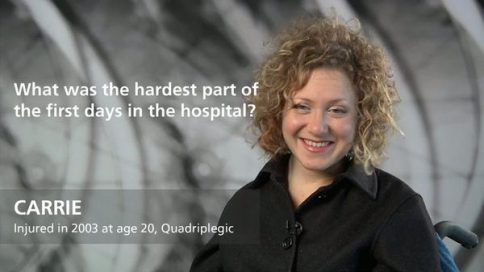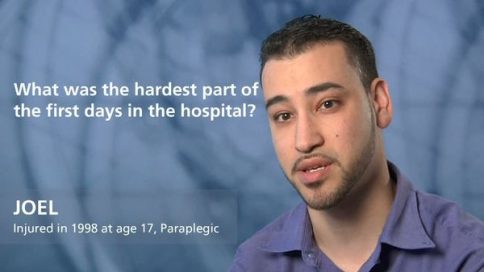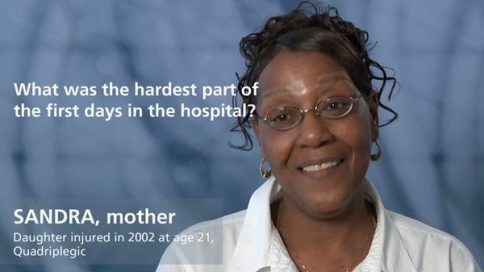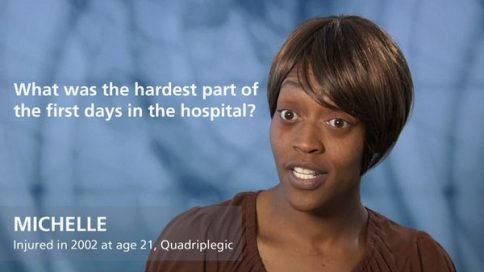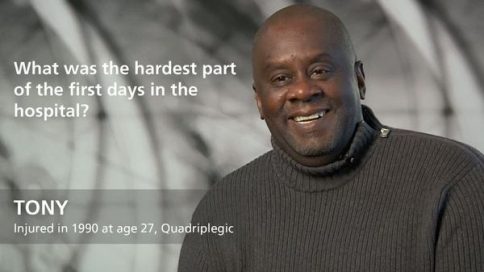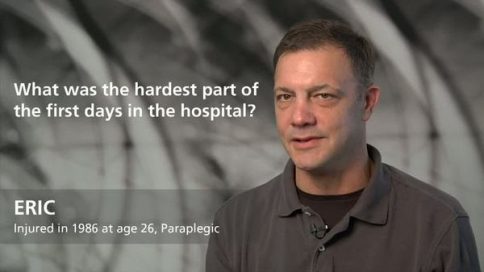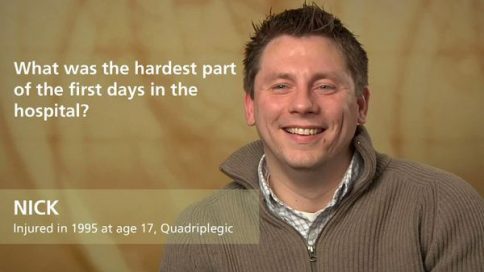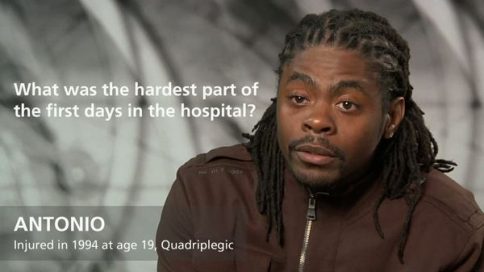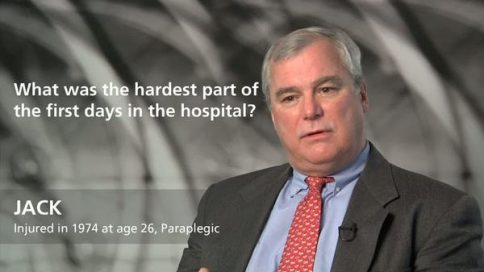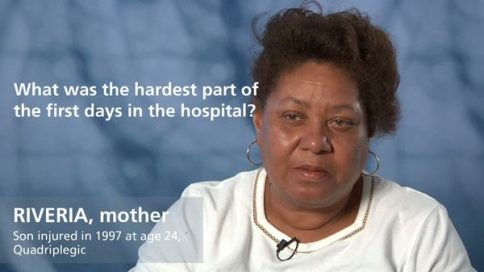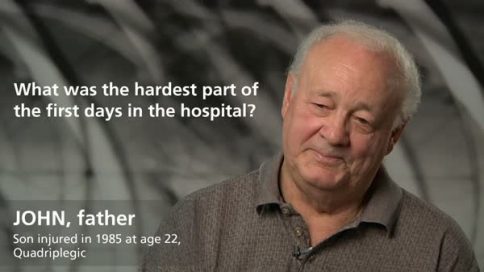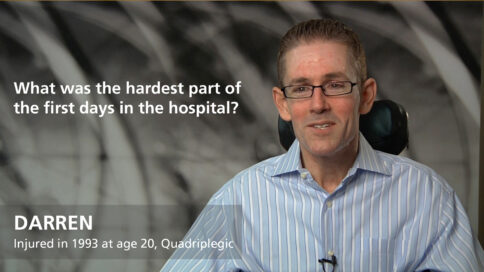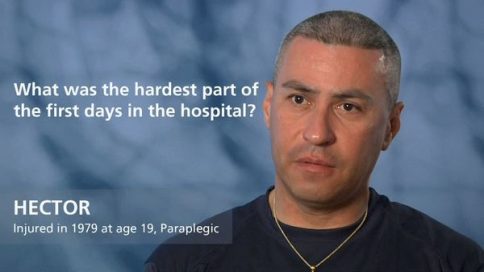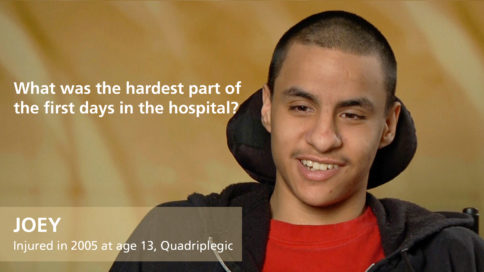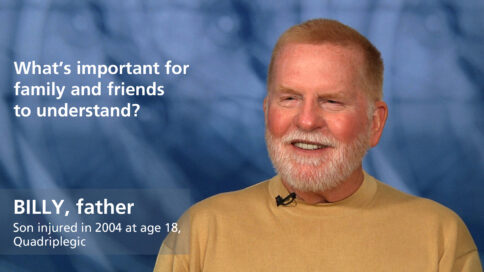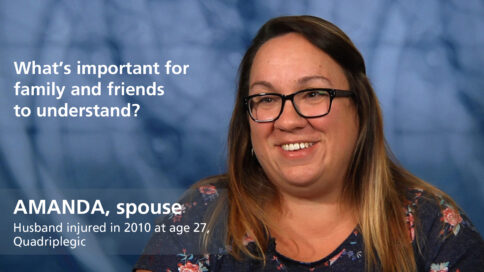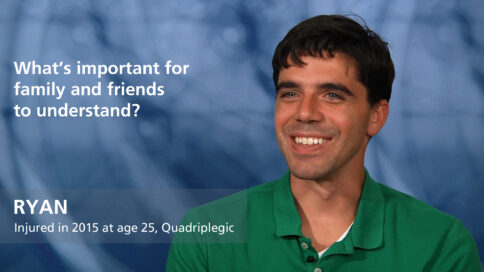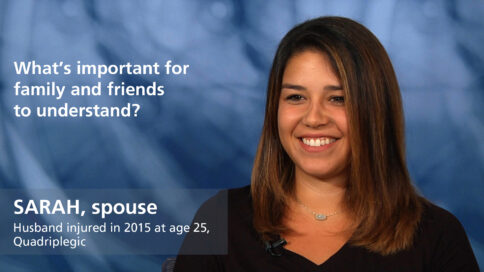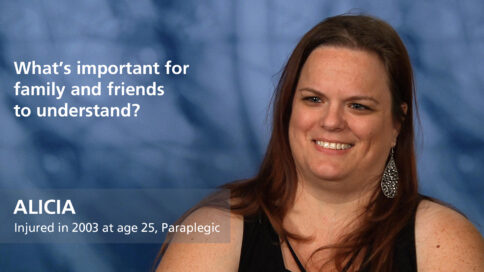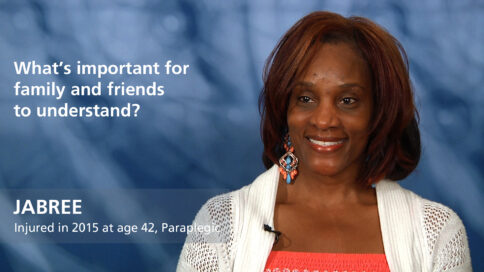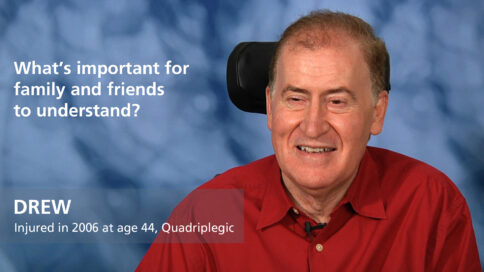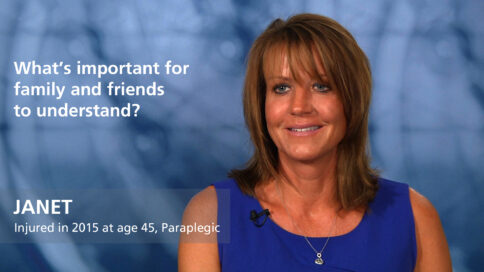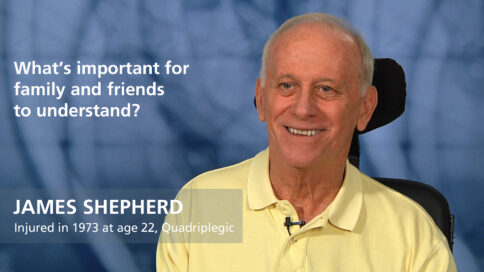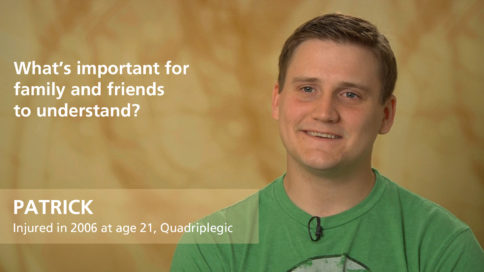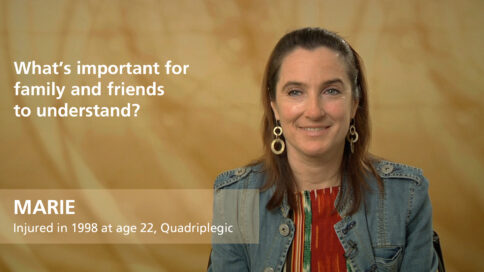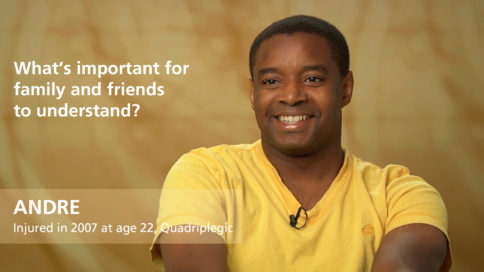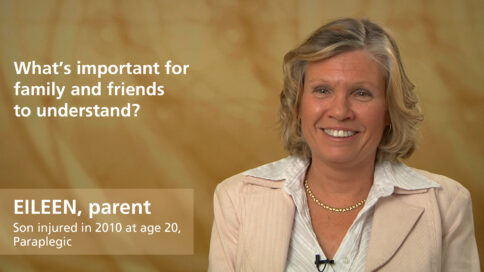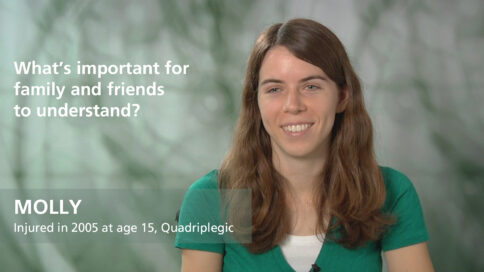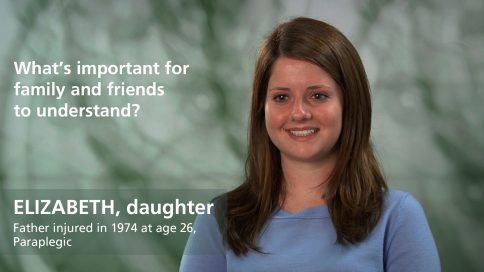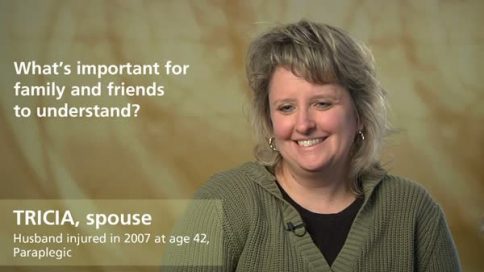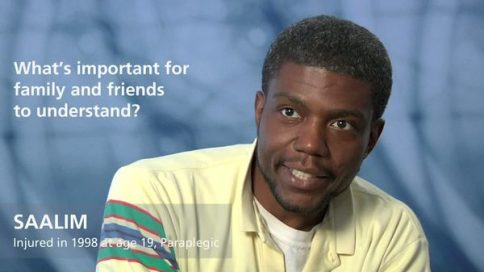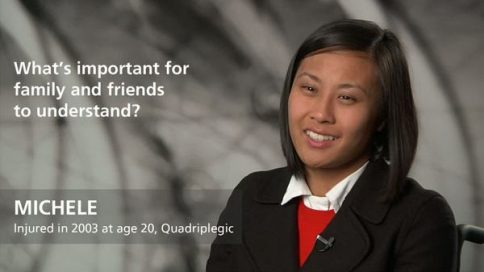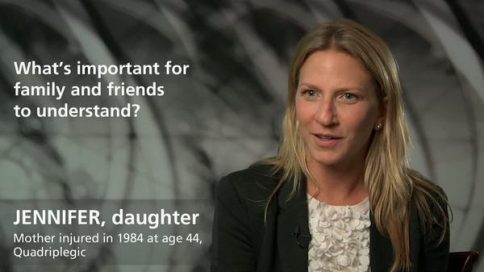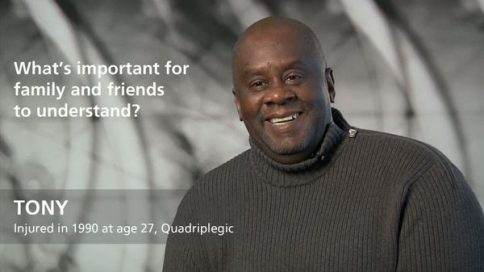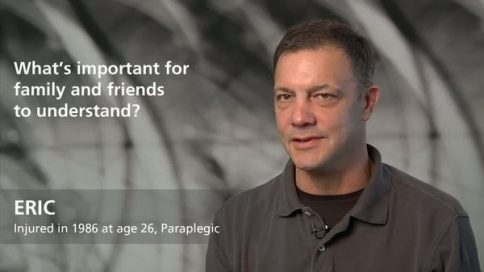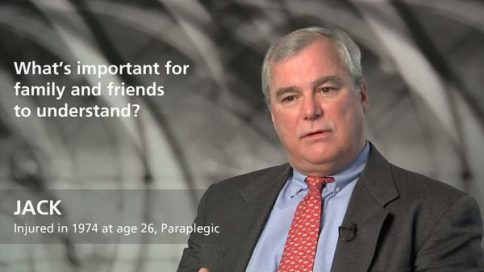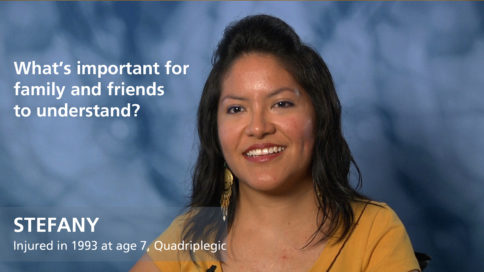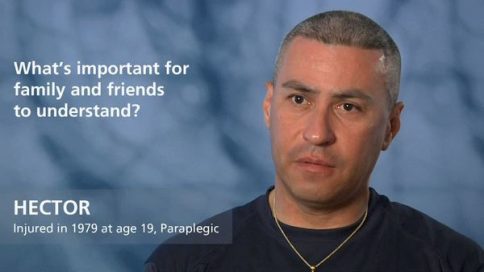What are the major pitfalls to avoid after a spinal cord injury? - Nancy Rosenberg, PsyD
|
|
What are the major pitfalls to avoid after a spinal cord injury? |
|
Nancy Rosenberg, PsyDPsychology Clinical Specialist and Director, Peer Mentor Programs, Magee Rehabilitation Hospital, Philadelphia |
||
| Read Bio | More Videos by Nancy Rosenberg | |
|
Share |
||
Transcript
I think families have to guard against getting sucked into bad dynamics with their injured loved one. Because sometimes, when people go home, they behave in ways they perhaps shouldn’t behave. Perhaps they’re asking people to do things for them that they can really do themselves, or they’re allowing people to do things for them that they really can do themselves. Some people get into that needy, bossy kind of style of relating, particularly with their families. They wouldn’t do this with other people, but with families, this is what happens. It’s very important for families not to allow themselves to engage in that, because it’s not good for the family, and it’s not good for the loved one, who’s injured. The idea is to empower. Empower yourselves as a family unit, and empower the person, who is injured, in any way they can. Because the more empowered everybody is, the more successful the family unit will be.
Show Less|
|
||
add
What are the major pitfalls to avoid after a spinal cord injury? |
||
Nancy Rosenberg, PsyDPsychology Clinical Specialist and Director, Peer Mentor Programs, Magee Rehabilitation Hospital, Philadelphia |
More Videos by Nancy Rosenberg | |
| Transcriptadd | share | |
I think families have to guard against getting sucked into bad dynamics with their injured loved one. Because sometimes, when people go home, they behave in ways they perhaps shouldn’t behave. Perhaps they’re asking people to do things for them that they can really do themselves, or they’re allowing people to do things for them that they really can do themselves. Some people get into that needy, bossy kind of style of relating, particularly with their families. They wouldn’t do this with other people, but with families, this is what happens. It’s very important for families not to allow themselves to engage in that, because it’s not good for the family, and it’s not good for the loved one, who’s injured. The idea is to empower. Empower yourselves as a family unit, and empower the person, who is injured, in any way they can. Because the more empowered everybody is, the more successful the family unit will be.
